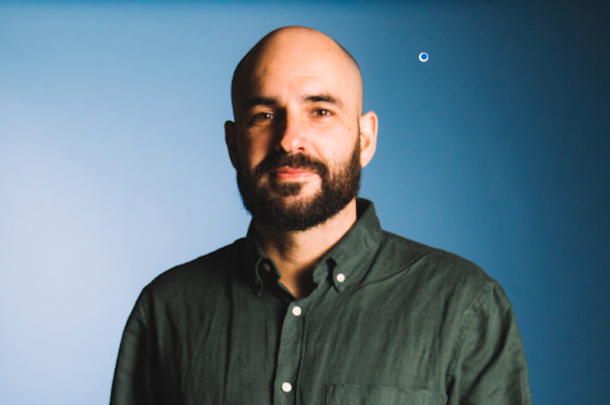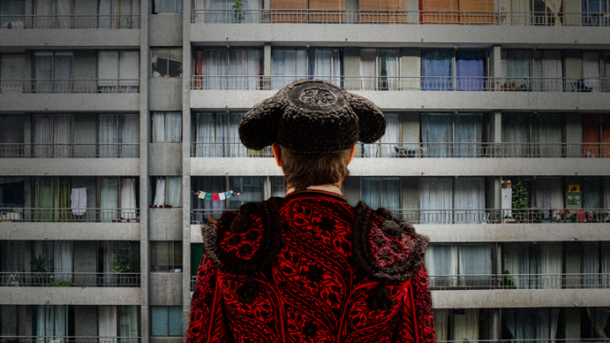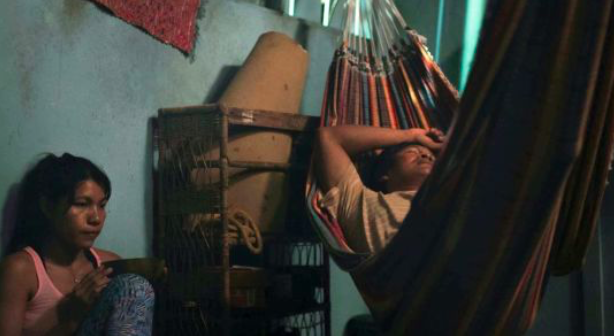Manuel Manrique’s latest project is headed to the Locarno International Film Festival.
The Latino filmmaker’s last Head On The Wall (Una cabeza en la pared), a clever study of modern masculinity through the lens of Spain’s polarizing bullfighting tradition, will be part of the festival’s Match Me! sessions as part of Madrid-based Kabiria Films production slate, presented by co-founder Diego Saniz.
 “I think the most interesting thing about Head On The Wall is how it talks about global issues from the particularity of something as local and Spanish as bullfighting, taking advantage of it as a metaphor for the contradiction of the human being and the complexity of such a current issue,”Saniz told Variety.
“I think the most interesting thing about Head On The Wall is how it talks about global issues from the particularity of something as local and Spanish as bullfighting, taking advantage of it as a metaphor for the contradiction of the human being and the complexity of such a current issue,”Saniz told Variety.
 “In addition, we believe that all the aesthetics and atmosphere of the bullfighting world can also help to connect with the international audience.”
“In addition, we believe that all the aesthetics and atmosphere of the bullfighting world can also help to connect with the international audience.”
Written by Manrique and Itziar SanJuan Saenz, the story takes place in the not-so-distant future. Bullfighting is banned, and protagonist Rafael Jesús finds himself grappling with the loss of his livelihood while trying to fit into an unaccommodating world he struggles to recognize.
“This is the story of a man who can’t find his place in this century,” Saniz relayed. “Using the bullfighting world as a framework to reflect on the new masculinities, our position is not to judge, but to observe and try to understand. A drama film with touches of comedy under an atmosphere of futuristic Spanish folklore.”
Attending the networking sessions provides the curation of ideas across continents and thematic divides. Saniz admitted that “it’s a privilege for us to be able to attend Locarno as part of Match Me! for the positioning of the production company and our projects at an international level, in addition to doing so at a national level as one of the representatives of Spain within this program.”
“In addition, being able to approach professionals from other parts of the world in a point similar to ours but with very different ways of understanding and working in the industry is very favorable for the understanding of cinema at a global level: listening, sharing experiences and creating new synergies between countries,” he continued.
Kabiria touts efforts to embrace independent, arthouse cinema while appealing to wider audiences in a fortuitous move that Saniz deems a necessity of successful modern filmmaking.
“I believe that as filmmakers we have a responsibility to the public,” he opined. “By this, I mean that our films would not exist if there were no people to see them. And this is something we shouldn’t forget. We must pursue a balance between continuing to generate an audience without losing the particularity of the artistic style that makes each director unique.”
“Cinema is an art that requires a much higher investment of time and money than any other, and that is why we must be aware of what we’re doing and that this has social or cultural relevance. Cinema is also an industry that must be sustainable in economic terms, and independent producers have to be very aware of that and learn to live with the rest of the industry’s assets. For us, it’s deeply satisfying when a film of ours achieves the favor of both the public and the critics: that is the goal we want to pursue.”
The project participated in Focus COPRO’ at Cannes, The Incubator at the Madrid Film School’s ECAM Industria, Ventana Cinemad and the Next Gen Film Finlab. Cast and production dates are yet to be determined.

